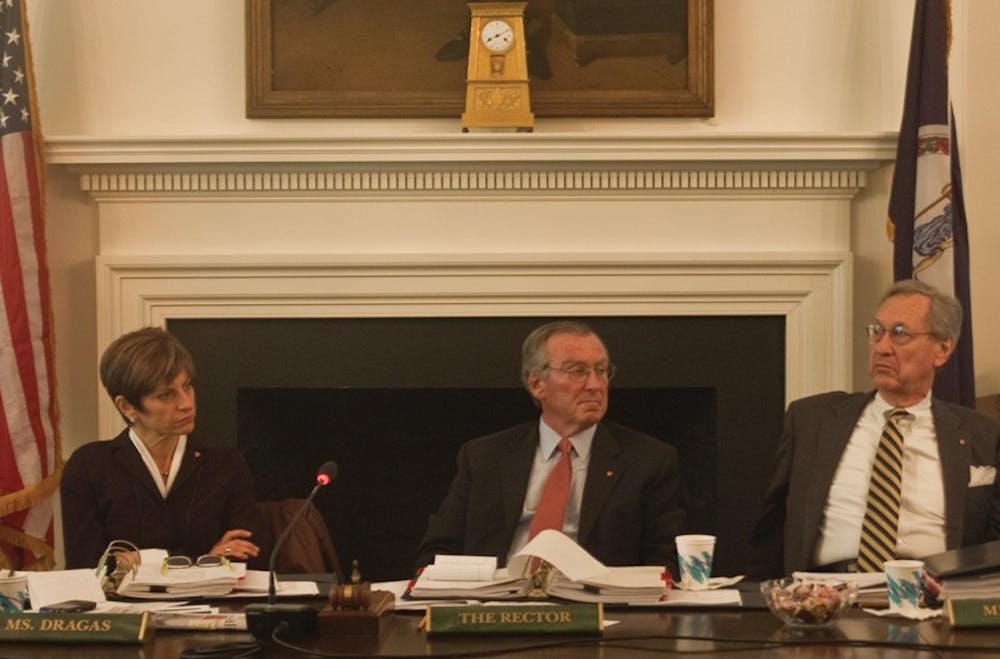The Office of Admission will offer a non-binding, early action application option for prospective students beginning next fall.
The new policy will allow high-school seniors graduating in 2012 to be told by Jan. 31 - three months ahead of the general admission pool - if they have been admitted, denied or deferred. If they are admitted, they may wait until May 1, 2012 to make a decision, giving them time to weigh all of their options. Students must apply by Nov. 1, 2011 to be considered for the program.
University President Teresa A. Sullivan and other University administration announced their decision to introduce the early action option yesterday. Dean of Admissions Greg Roberts - who began researching the option this summer - presented his follow-up information on the program to the Board of Visitors during its Academic Affairs Committee meeting, explaining that the program will benefit both students and the University.
"We believe that the last several classes, since eliminating early decision, have been the strongest academically and the most diverse ... [Early action] will allow us to continue to attract excellent students from diverse backgrounds while also providing students more flexibility and freedom when applying to college," Roberts said.
Moreover, it is possible that some students may not have applied to the University in recent years because they prefer the security of early decision or action programs at other institutions.
"We believe we'll be able to attract some students who might not currently be in our pool because they want to be able to make their decisions early," he added.
Overall, Roberts said, the admissions process has become increasingly stressful. As a result, admissions officials decided that offering early action would help alleviate some of the stresses associated with the process, he said.
Roberts said this decision will likely create more work for his office because those applications that are deferred will need to be reevaluated during the second cycle.
As a result, the University hopes to hire one additional staff member both in admissions and in financial aid to accommodate the accelerated notification schedule that those two offices will need to follow. Officials are still working through how to fund this change in a budget crunch, University spokesperson Carol Wood said.
From 2000-06, the University offered a binding "early decision" admission option. Late Dean of Admissions Jack Blackburn championed an effort in 2006 to eliminate the option because it was considered unfair to minority applicants and those applying for financial aid, who could not be notified about financial aid until after the deadline for accepting early decision applicants. Consequently, it was believed that these applicants were forced out of applying early decision.
With early action, however, a different picture seemingly has emerged.
"Over the past few years, [the University] has had a chance to look at peer institutions with early action plans," Wood said. The data showed that "early action did not have the same impact on students of lower socioeconomic means because it is not binding."
This system,







